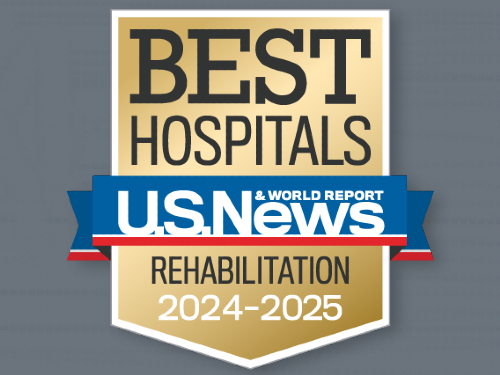
These challenges are often amplified for people living with traumatic brain injury (TBI).
To address these social and cultural barriers that can impact health and participation, Angelle Sander, PhD, director and senior scientist of the Brain Injury Research Center at TIRR Memorial Hermann, and her colleagues are hard at work on programs aimed at combating the impact of social determinants of health on those with TBI. The efforts grew out of discussions that took place during the 2024 Moody Galveston Conference, an event organized by the Moody Foundation, a philanthropic organization that works to empower Texans and strengthen their communities and was conducted in partnership with the National Association of State Head Injury Administrators (NASHIA).
“We decided to help clinicians to better understand these factors that can impact people’s health and also help them to learn how to address these barriers in their daily practice,” Dr. Sander says.
The five social determinants of health identified as priority areas in the Office of Disease Prevention and Health Promotion Healthy People 2023 program1 are:
- Economic stability
- Education access and quality
- Health care access and quality
- Neighborhood and built environment
- Social and community context

Looking specifically at social determinants of health in relation to outcomes following brain injury, the group began to develop two initiatives.
The first, a “Social Determinants of Health and Brain Injury” fact sheet, is targeted to health care professionals who provide care for patients with TBI. The sheet focuses on concisely educating these individuals on social determinants of health—what they are and how they may affect the individuals they treat.
“Physicians don’t have a lot of time, so we want to raise their awareness of the importance of these social determinants of health and give them tips on how they can address them efficiently in their clinical practice,” Dr. Sander notes.
The second initiative under development is a six-episode podcast series. “The purpose of the podcast is to bring together clinicians and people with lived experience of brain injury and/or their care partners and have a conversation around these social determinants of health and how they impact people’s lives and recovery from brain injury,” Dr. Sander explains.
Following an introductory episode, each segment will focus on an individual social determinant of health, providing collaborative discussion and recommendations for addressing them to optimize outcomes for individuals with brain injury.
As both projects are completed during the coming months, Dr. Sander looks forward to the help they will provide to individuals with brain injury and their families, as well as the education they will give to health care professionals trying to comprehend the significant challenges these individuals face.
“When working with underserved populations, we learned quickly that catastrophic events such as TBI often weren’t the worst thing that had happened to these individuals,” Dr. Sander says. “This really provides an eye-opening perspective that we, as health care professionals, aren’t always experts on what is more important for people’s quality of life. We need to listen and have a cultural humility that allows us to understand that we don’t have all the answers and to learn from people to better understand how to address their care holistically.”
Reference:
1U.S. Department of Health and Human Services. Healthy People 2030. Social determinants of health. https://odphp.health.gov/healthypeople/priority-areas/social-determinants-health
